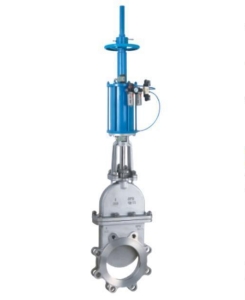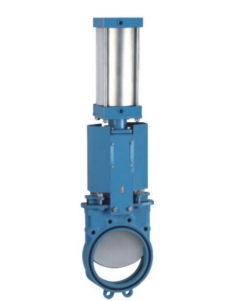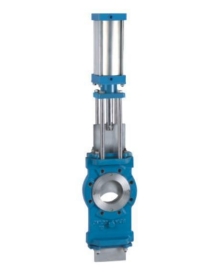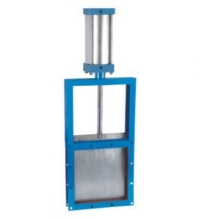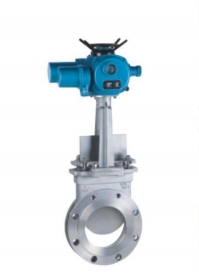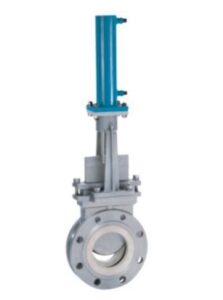
Maintaining the highest standards of hygiene and product quality in the food and beverage industry is non-negotiable. Any mistake in this area can lead to major health risks and damage. This is where the hygiene filter runs to the forefront. These humble factors play a vital role. Ensuring food and beverage facility equipment meets demanding hygiene and workmanship standards. We will explore the important role of hygiene products in this critical area in more detail to emphasize their importance in maintaining product integrity. Please join us! As we explore the exciting world of these valves. and their important functions in food and beverage equipment.
What is a Sanitary Control Valve?
The cleaning control valve is designed to maintain shttps://studio.youtube.com/video/qNEQOk5Bgnw/edittrict hygiene and product purity standards. in food, beverage, pharmaceutical and biotechnology. These valves are purpose-built for maximum cleanliness and safety of machinery and control systems. They also have biodegradable materials and smooth surfaces with no cracks to prevent bacteria from growing on the surface. and to accurately control the flow of water or air. The sanitary control valves also incorporate aseptic sealing technology. To maintain hygienic conditions during closure. They are usually designed for easy disassembly and repair. compliance with Clean-in-Place (CIP) procedures. Compliance with industry standards and regulations further ensures adequacy in applications where product quality and safety are paramount. creating redundancies in consumer goods and pharmaceutical manufacturing.
What is the Main Function of a Sanitary Control Valve?
The primary function of a sanitary control valve is to accurately control the flow of water or air in the production system. It is designed to meet the stringent requirements of the food, beverage, pharmaceutical and biotechnology industries. Their main activities are:
Flow control: Sanitary control valves allow operators to control the rate and quantity of material passing through the pipeline. This precise control system is critical to maintaining consistent production quality and executing production schedules.
Cleanliness: Valves are made of materials and formulations that prevent the growth of dirt and bacteria. They have smooth crack-free materials and non-aseptic sealing devices to ensure product safety.
Sterilization and Cleaning: Many cleaning control valves are designed for easy disassembly and cleaning. This feature is important for Clean-in-Place (CIP) and Sterilize-in-Place (SIP) systems. Where equipment must be thoroughly cleaned and disinfected without cracking.
Compliance: These valves comply with industry specific standards and regulations. ensure they are suitable for use in applications where purity and product integrity are required to be maintained. Regulation is often confirmed by certification such as 3-A Sanitary Standards or FDA approval.
In summary, the primary function of a purity control valve is to ensure smooth flow. maintaining the highest standards of hygiene and product quality in the industries where these products are most important. They play an important role in maintaining the integrity of the final product. Pollution prevention in critical manufacturing.

What are the Advantages of Sanitary Control Valves?
Reduced maintenance costs
Cleaning control valves helps reduce maintenance costs. especially through their clean and sustainable construction. Their smooth, crack-free surfaces and corrosion-resistant materials minimize the accumulation of dirt and bacteria. Additionally, many of these valves are compatible with Clean-in-Place (CIP) and Sterilize-in-Place (SIP) processes. Effective cleaning to ensure complete disassembly. Their durable construction makes them durable. Reduces the need for replacement or maintenance on a regular basis. This reliability and ease of maintenance reduces downtime, labor costs and delays. Finally, it helps reduce costs in industries where hygiene and product integrity are important.
Regulate the Flow
Sanitary control valves regulate the flow rate by precisely controlling the opening or closing mechanisms in the pipeline. This special valve has components such as valve stems or actuators. it can be adjusted to change the direction of flow significantly. As the valve is opened or closed differently, it affects the flow of liquid air. allowing for better flow control. Users can adjust the valve manually or electronically. To achieve the desired flow rate. To ensure accurate and consistent flow control. This level of consumption is of great importance in the food, beverage and pharmaceutical industries. where it is necessary to maintain specific product specifications for quality and safety.
Reduce the risk of contamination
Sanitary control valves play an important role in reducing the risk of contamination. Purpose-built with smooth, crack-free materials and corrosion-resistant materials such as stainless steel. These materials prevent the accumulation of dirt and bacteria on the valve surface. To reduce the risk of microbial growth and product contamination. In addition, purity control valves have aseptic sealing mechanisms that maintain a purity seal when closed. To prevent possible water leakage or contamination from the street. This stringent cleaning and maintenance program greatly reduces the risk of product contamination.
Superb Flexibility
Cleaning control valves provide excellent flexibility. Because of their varying valve types and configurations. allowing flexibility in various technologies. Various types of valves, such as ball valves, butterfly valves, and diaphragm valves, allow you to choose the most appropriate type for specific applications They can handle a wide range of flows and pressures. making them versatile for different production needs. In addition, these valves are generally compatible with automation control systems. allowing precision and remote operation. Their variability under different flow conditions, temperature and pressure conditions increases their variability. Increasing the value of sanitary control valves to meet the unique needs of food, pharmaceuticals and other industries.
Summary
Sanitary control valves are custom-designed systems. They facilitate clean, safe, and efficient manufacturing processes. Their ability to minimize the risk of contamination. Regulate flow rates, and adapt to different needs. Investing in these valves is a smart choice. For manufacturers looking to enhance their operations. With the assurance that they invest in a safer, more efficient, and consistent manufacturing process.
BCST is a professional supplier of sanitary control valves. With an emphasis on high-quality production and exceptional customer service. We offer a comprehensive range of sanitary control valves. Each valve is meticulously developed and manufactured. To satisfy the greatest hygiene, durability, and efficiency standards. BCST sanitary control valves are made of high-quality stainless steel. Resistant to the corrosive effects of food and beverage items and cleaning agents.

